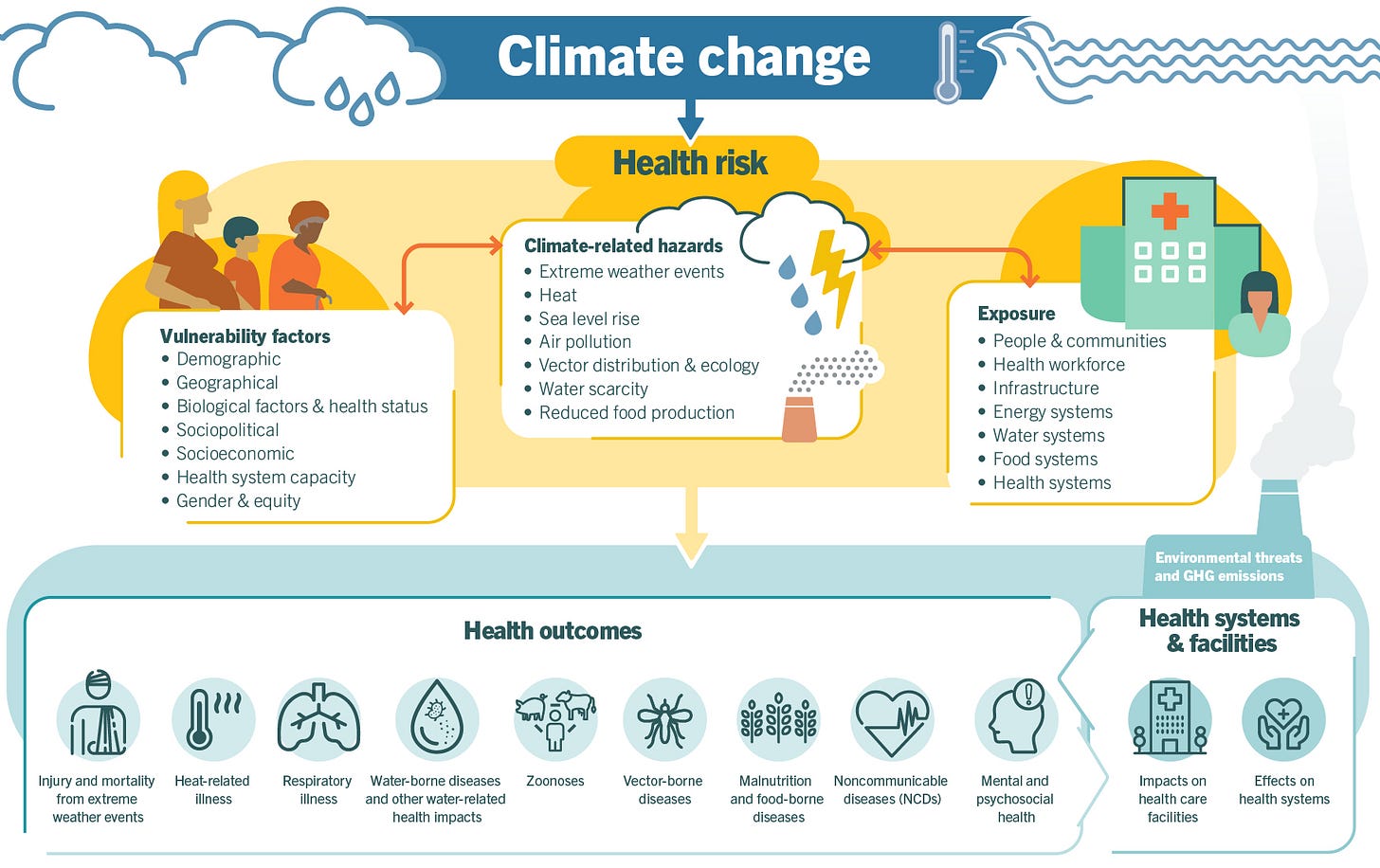Four For Friday | Nov 14, 2025
LF196 | More languages means healthier aging, fixing lysosomes could also help, quantum is here, $300m for climate-related health + Amazon's procurement tool
Welcome to this week’s Four For Friday - nuggets of interesting things I’ve picked up this week, plus my favorite AI tool du jour.
1. Learn a language, live longer
We’ve put our two boys into French school here in Australia, mostly as we’ve heard it does good things for the brain - and because we’re from Europe and want to maintain the semblance of connection to the olde worlde. It turns out we may also be giving them a few more healthy years, according to this Nature Aging research shared by Eric Topol.
It looked at 86,000 adults across 27 European countries and found that multilingualism provides three additional years of healthy aging, while speaking only one language is linked to a loss of five years of healthspan.
The research showed a clear dose response: the more languages you speak, the more protection from accelerated aging. Monolinguals were 2.1 times more likely to experience accelerated aging, while multilinguals were 2.2 times less likely. The effect held across all ages and survived rigorous controls for education, physical activity, and cognitive function.
The So What? This is applied longevity at its most accessible. There’s more evidence here than for any anti-aging supplement or longevity clinic, and at zero risk. Some of the best healthspan interventions are behavioral, scalable, and free.
2. Alternatively, get your cells to do it
Researchers from Peking University discovered that the lysosome—the cell’s natural recycling system—is responsible for clearing out progerin, the toxic protein that drives premature aging in Hutchinson-Gilford Progeria Syndrome and also accumulates during normal aging.
In cells from Progeria patients, this cleanup system was broken, allowing progerin to build up. The study reactivated lysosomes and as a result were able to boost the removal of progerin and reverse the signs of cellular aging - including DNA damage and loss of cell vitality.
So what? This approach targets root causes: a faulty waste disposal system. It reframes aging not as an inevitable decline, but as a systems failure that can be repaired.
3. A quantum leap in a year
At the start of the year, Nvidia’s CEO said quantum computing was still 15-30 years away from being useful. The industry just spent the last 11 months proving him wrong.
2025 has been a breakout year for quantum, with record investment ($3.77 billion in the first nine months, nearly triple all of 2024) and, more importantly, real-world commercial applications. HSBC used IBM’s quantum computer to improve its bond trading predictions by 34%. Ford is using D-Wave’s system in production to slash scheduling times from 30 minutes to 5.
The technology is moving from R&D to deployment, with Quantinuum launching a machine so powerful they claim you’d need to “harvest every star in the universe” to power a classical computer that could match it.
So what? This isn’t just about faster computers; it’s about solving problems that are currently unsolvable. It’s likely going first to the fields with cash - drug discovery, finance - but hopefully before long will address complex, intractable mission-driven challenges like healthspan, poverty and climate change.
4. $300m for climate-driven health issues
At COP30 this week, over 35 leading philanthropies - including the Gates, Rockefeller, and Wellcome foundations - committed $300m to tackle the escalating public health crisis driven by climate change.

The Coalition will fund the implementation of the Belém Health Action Plan, a landmark framework that places human health at the center of climate action. The immediate focus is on extreme heat, air pollution, and climate-sensitive infectious diseases. The announcement reframes the climate crisis as a health crisis, highlighting the fact that heat-related deaths have surged 23% since the 1990s, with 546,000 deaths annually.
The So What? Climate change isn’t just about polar bears and ice caps; it’s about asthma, heart disease, and infectious diseases spreading to new regions.
Bonus AI Tip of the Week: Amazon’s procurement tool
A potentially practical, money-saving tool for businesses - Amazon launched Amazon Business Assistant - a conversational AI tool to streamline procurement. The tool guides users through purchasing, identifies savings, and makes recommendations. It’s available free to U.S. customers.
That’s all for now - happy weekend everyone.
- Stephen



